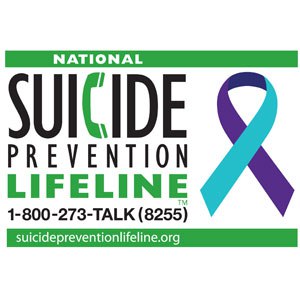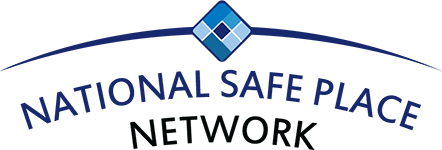Written by: Elizabeth Smith Miller, Director of Marketing and Events, National Safe Place Network
Did you know that millions of Americans are directly affected by more than 37,000 suicides each year? September is National Suicide Prevention Awareness Month with this week being National Suicide Prevention Awareness Week. World Suicide Prevention Day is Saturday, September 10th. Suicide is the third leading cause of death among young people and your prevention efforts are critical.
Risk Factors
- Family history of suicide
- Substance abuse / intoxication
- Access to lethal means
- Serious or chronic medical illness
- Mental disorders – i.e. mood disorders, schizophrenia, anxiety, and certain personality disorders
- Hopelessness
- History of trauma or abuse
- Prolonged stress
- Lack of support and sense of isolation
- Lack of health care – i.e. mental health and substance abuse treatment
- Recent tragedy or loss
- Agitation and sleep deprivation
- Impulsive and/or aggressive tendencies
- Previous suicide attempt
- Gender (more women attempt suicide; however, men are four times more likely to die by suicide)
- Age (people under the age of 24 and over 65 are at an increased risk for suicide)
Warning Signs
- Suicidal ideation – Threats or comments about killing themselves
- Talking, writing, or thinking about death
- Increased substance use (drugs/alcohol)
- Aggressive behavior
- Social withdrawal
- Dramatic mood swings
- Impulsive or reckless behavior
List of risk factors and warning signs obtained from: http://www.suicidepreventionlifeline.org/learn/riskfactors.aspx
http://www.nami.org/Learn-More/Mental-Health-Conditions/Related-Conditions/Risk-of-Suicide
What can you do?
Learn about suicide. Visit http://www.nami.org/Learn-More/Mental-Health-Conditions/Related-Conditions/Suicide and http://www.sprc.org to learn more about suicide.
Educate others. Take a look at this great Suicide Prevention Month Ideas for Action Resource Guide by the Suicide Prevention Resource Center. http://www.sprc.org/sites/default/files/resource-program/Suicide%20Prevention%20Month%20Ideas%20for%20Action%20September%202016.pdf
Be prepared for a crisis.
http://www.nami.org/Find-Support/Family-Members-and-Caregivers/Being-Prepared-for-a-Crisis
Take action.
If you think your friend or family member will hurt themselves or someone else, call 911. Here are some additional steps you can take to reduce risk:
- Remove lethal means (i.e. guns, knives, pills)
- Calmly ask simple and direct questions. (i.e. What can I do to help? Can I help call your counselor or psychiatrist?)
- Talk openly and honestly about suicide. (i.e. Are you having thoughts of suicide? Do you have a plan to hurt yourself?) – Make sure only one person is speaking at a time if multiple people are present.
- Don’t debate if suicide is right or wrong.
- Don’t argue, threaten, or raise your voice.
- Assist with calling the National Suicide Prevention Lifeline at 1.800.273.TALK (8255)
- View a complete list of these tips here: http://www.nami.org/Find-Support/Family-Members-and-Caregivers/Preventing-Suicide
Resources
- National Suicide Prevention Lifeline Wallet Card: Suicide Prevention: Learning the Warning Signs (Order Free) - http://store.samhsa.gov/product/National-Suicide-Prevention-Lifeline-Wallet-Card-Suicide-Prevention-Learn-the-Warning-Signs/SVP13-0126
- National Suicide Prevention Lifeline Wallet Card: Having Trouble Coping? With Help Comes Hope (Order Free) - http://store.samhsa.gov/product/National-Suicide-Prevention-Lifeline-Wallet-Card-Having-Trouble-Coping-With-Help-Comes-Hope-/SVP13-0155R
- National Suicide Prevention Lifeline Wallet Card: Assessing Suicide Risk: Initial Tips for Counselors (Order Free) – http://store.samhsa.gov/product/National-Suicide-Prevention-Lifeline-Wallet-Card-Assessing-Suicide-Risk-Initial-Tips-for-Counselors/SVP13-0153
- After an Attempt: A guide for taking care of loved ones or yourself after treatment in the Emergency Department (Digital resource guide for those who have made an attempt) –
Loved one: http://store.samhsa.gov/shin/content//SMA08-4357/SMA08-4357.pdf
Yourself: http://store.samhsa.gov/shin/content/SMA08-4355/SMA08-4355.pdf
- You Matter. You Matter provides a safe environment for youth to discuss and share stories about mental health and wellness. The site shares blogs written by youth ages 13 to 24 that are passionate about suicide prevention and mental health. http://www.youmatter.suicidepreventionlifeline.org/
- http://www.stopbullying.gov/






